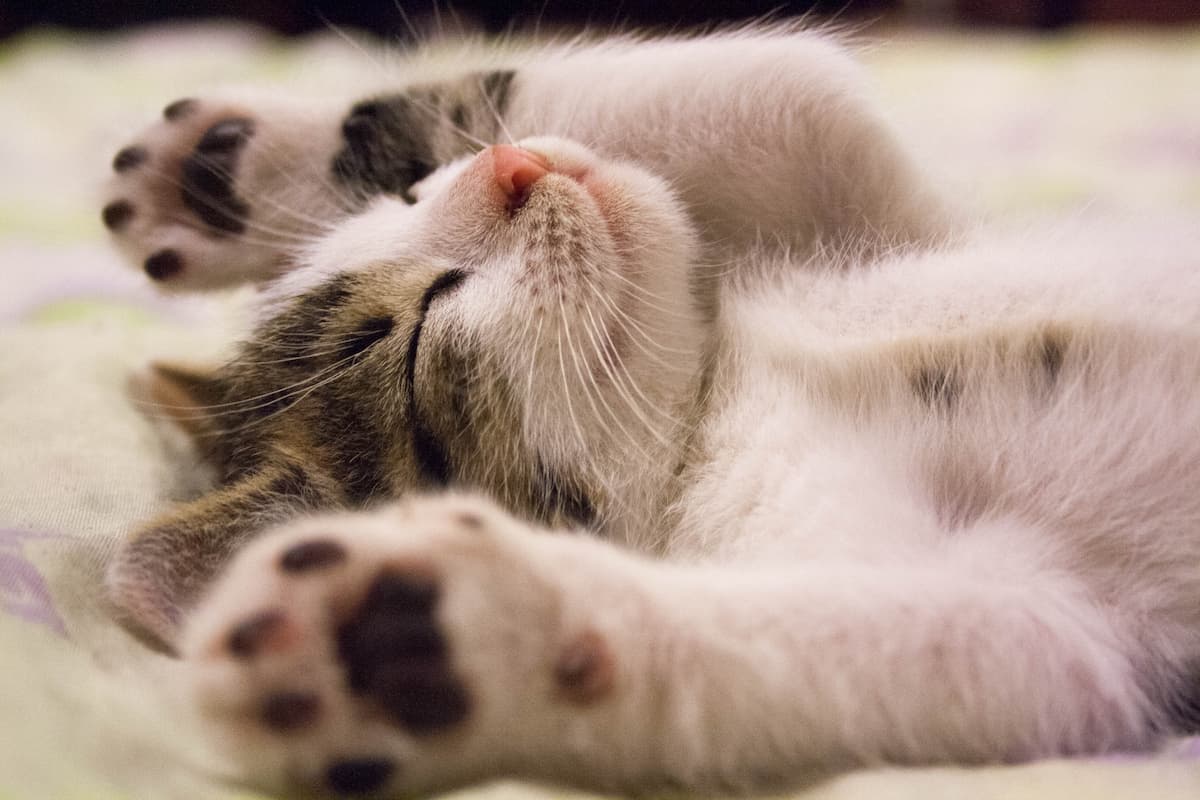Is Cockroach Spray Harmful To Cats?
Spray treatments are one of the most effective ways to eliminate cockroaches; however, many wonder whether these treatments are safe for pets.
It’s a valid concern since animals like cats are curious, and you can’t always control their behavior.
The good news is that most cockroach sprays are safe for cats. The toxicity levels are low, and death or illness is rare if the poison is ingested. Still, if you plan on spraying your house against cockroaches, it’s best to remove your animals during the treatment.
The same applies if you have kids, as they’re more sensitive to pesticides than adults.
Cats are harder to monitor, so you must watch them closely.
The following will tell you how to manage the situation, what to look out for, and how to address potential emergencies.
How to Prevent Poisoning in Cats

Implementing Integrated Pest Management (IPM) principles is the number one way to prevent cat poisoning.
IPM is a series of steps that help you manage cockroaches and other pests safely and economically.
They also help reduce the effects of pesticides on people, crops, and, in this case, pets.
Seek Advice From the Exterminator
Before starting any pesticide treatments, you should first ask the exterminator for the best way to manage your pets.
A well-informed professional will tell you whether or not the spray is harmful, what the treatment entails, and the precautions you must take to guarantee the health and safety of your animals.
Isolate or Remove the Pet
Regardless of how ‘safe’ a pesticide treatment is, it’s generally better to isolate or remove the cat from the treatment zone.
The total time to keep them out depends on the chemical and the recommendation from the exterminator.
Generally speaking, you should plan to keep your pet away from the treated areas for at least two to three hours, but longer is better.
If the treatment is outside, keep them away for 30 minutes to an hour.
A good way to know whether enough time has passed is to check if the cockroach spray has completely dried out. If there are still wet patches, you’ll have to wait a bit longer.
To avoid accidental contamination, also remove the pet’s accessories, such as bedding, toys, brushes, and bowls.
Implement General Safety Measures
If carrying out the treatment yourself, always read the safety instructions on the label or inside the package.
You’ll know how toxic the chemical is, whether you should use it around pets, and how to apply it safely.
Properly storing your pesticides is also important for pet safety.
Cats are agile, so stashing the can on top of cabinets isn’t enough. You may even want to consider a locked or hard-to-access cupboard to safely store your cockroach sprays.
After using the chemical, deposit any contaminated trash in outside bins.
Also, tell your family about the treatment beforehand so they can sort and properly store their stuff.
Signs of Poisoning in Cats
For obvious reasons, you can’t rely on your cat to be responsible for its own health under these circumstances.
Cats aren’t inclined towards caution and may do weird things like lick surfaces that have been treated with the cockroach spray.
It might also get the pesticide on its fur or skin and then attempt to lick itself clean.
If you don’t isolate the cat during treatment, you must look for specific symptoms over the next few days.
The most common include:
- Breathing difficulties
- Diarrhea
- Drooling
- Lethargy
- Lack of appetite
- Seizures
- Vomiting
- Uncoordinated walking.
What To Do in Case of Poisoning

The most important thing to do in the case of poisoning is to call a veterinarian.
Do not give human medications to your pet unless you’re advised to do so.
If the effects seem severe, go to the vet right away.
Most cockroach pesticides have instructions on how to give first aid to a pet in case of poisoning.
If yours does, call the vet and ask if it’s ok to follow the steps.
You can also call the Pet Poison Helpline at (855) 764-7661, but keep in mind that they charge a $75 fee.
Alternatively, you can contact the ASPCA Animal Poison Control Center at (888) 426-4435. Consultation fees also apply.
Ensure to give as much information as possible when calling these helplines.
The essential details are:
- Your contact information (name, address, and phone number)
- The event that led to the poisoning
- Your pet info (sex, age, breed)
- The name of the pesticide
- The symptoms your pet is showing.
Can Cats Recover From Poisoning?
Whether or not your cat can recover from pesticide poisoning depends on when you take action.
Regardless of the chemical’s toxicity, the cat shouldn’t be exposed to it for too long.
Less toxic cockroach sprays give you more time to act. More hazardous sprays require you to take action sooner.
You should seek expert advice as soon as you see symptoms in your pet.
A licensed professional will inform you on how to proceed, help you understand the severity of the situation, and tell you approximately how long it will take for your cat to recover.
Conclusion
The use of cockroach spray around cats requires vigilance.
While most products are safe for use around pets, it’s generally best to take extra precautions.
Start with the basics, like reading the instructions on the bottle.
Remove or isolate the animal during the treatment to avoid excessive exposure to the pesticide.
To guarantee your cat’s safety, keep it out of the treated areas for two hours or more.
If you notice symptoms in the animal, contact a licensed professional as soon as possible.
